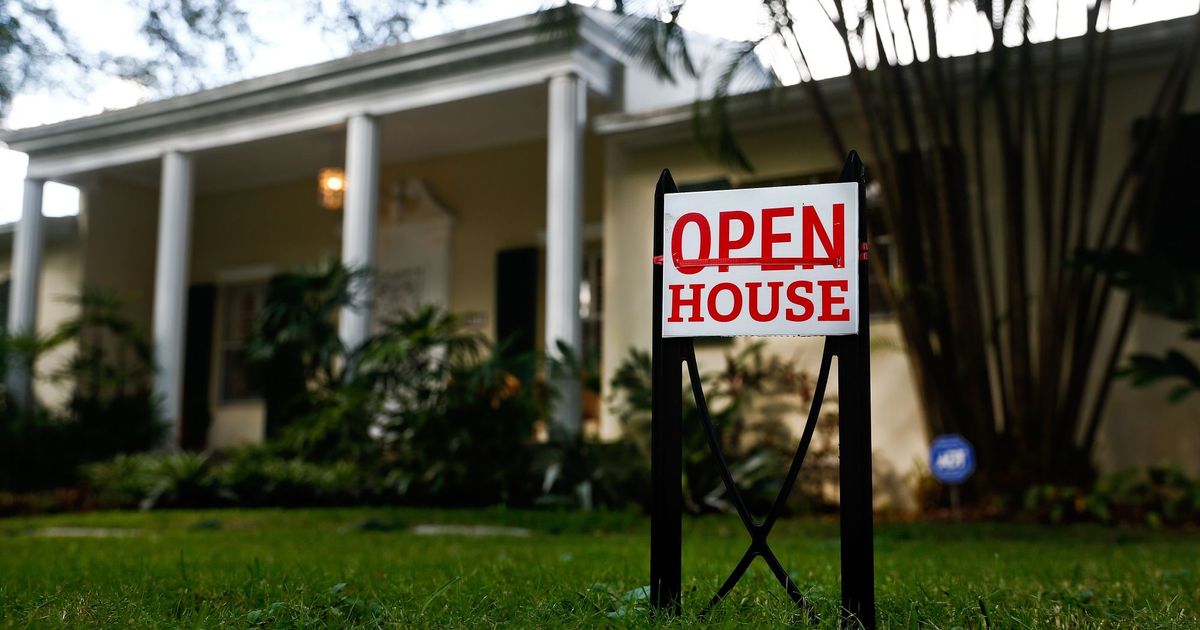OLYMPIA — By the time Tuesday rolls into Wednesday, Washingtonians should have a better idea of whether state lawmakers are going to limit rent hikes this year.
House Bill 2114, which would set a ceiling on annual rent increases at 7% annually for existing tenants, is unlikely to get a full vote in the House of Representatives until Tuesday, the same day it and many other bills face a deadline to get a vote in the chamber where they started.
The bill’s sponsor, Rep. Emily Alvarado, D-Seattle, said Monday afternoon that she couldn’t assess the likelihood of whether the bill was going to come up for a vote Tuesday.
“What I can say is that it’s obviously a really important issue to many people in this caucus,” she said.
House leadership has not yet decided whether to hold a floor vote on the measure and were focused on the bills running Monday, according to a spokesperson for House Speaker Laurie Jinkins, D-Tacoma. The House and Senate were abuzz with activity on Monday as legislators worked to meet the impending deadline.
The annual limit of 7%, which the current version of the bill establishes, would only apply to existing tenants and “reset” after a tenant moved out, after which a landlord could set the rent at whatever rate they wanted. It also exempts new construction from the limit for 10 years and would limit late fees to 1.5% of a tenant’s monthly total rent.
The bill comes as Washington faces a housing and homelessness crisis. It has faced resistance from many Republicans and some Democrats, who argue that the measure would undercut legislators’ ongoing efforts to boost the state’s tight housing supply by,deterring investors and landlords from providing housing because there would be a limit on their potential earnings amid rising costs.
The state Department of Commerce has estimated that Washington will need 1 million more housing units in the next 20 years.
Among supporters, urgency was building ahead of the cutoff date to get the House bill passed. The Senate version died in late January after failing to meet a deadline to get out of a policy committee.
“I won’t give up on this,” Alvarado said of the bill. “It’s the right thing to do for millions of Washingtonians, and I think for all of our communities.”
On Friday, leaders of a caucus representing legislators of color held a press conference to urge leaders to advance the bill, which they argue would provide stability for renters in Washington’s expensive rental housing market.
House leaders must decide whether to use limited time ahead of the deadline to hold a vote on the bill, a tricky calculation if the bill still faces significant hurdles in the Senate.
Sen. Yasmin Trudeau, D-Tacoma, said in an interview Friday that she anticipated “a big, long, drawn-out floor fight” over the bill.
“I’m really sensitive to the fact that leadership has to make those decisions,” Trudeau said. “That’s why we’re just trying to make as much pressure as possible to keep the conversation going. And so we’re using every tool that we can to do that.”
Last week, Jinkins said she was hoping that an ongoing “dialogue” in the Senate would create a “welcoming spot” for the bill to land if the House voted to pass it, but said she was wary of sending the bill “into a black hole.”
“I’m not particularly interested in stroking mine or anyone else’s ego and making myself feel like a hero for sending a bill into a black hole,” Jinkins said last week. “I don’t think that helps renters one bit.”
The legislation is highly unlikely to get bipartisan support. Rep. Andrew Barkis, R-Olympia, said Friday that the legislation is a “nonstarter,” and that measures to control rent prices have negative effects on the housing supply.
“Even though they have that prohibition on new construction, it still echoes through,” Barkis said. “I’m talking to developers who are willing to build hundreds and hundreds of units, and they’re waiting on this.”
He also pointed to the bill’s limit on late fees.
“What incentive is there to pay your rent?” he said.
Supporters argue that the measure is best described as rent stabilization, not rent control, because it limits annual increases for existing tenants, but doesn’t set a hard cap on all rents.
The 60-day “short” session hit the halfway mark last week and is scheduled to end in early March.
















